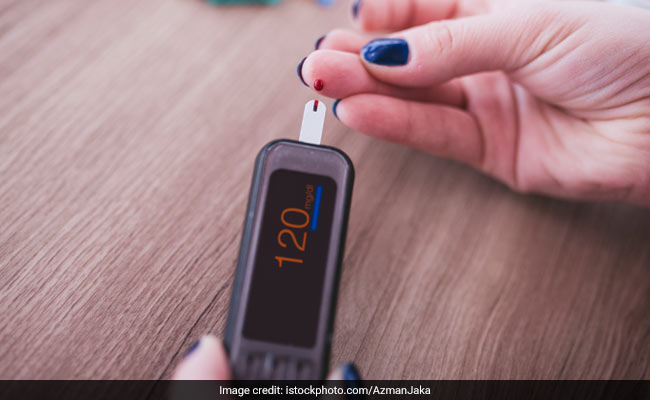Glycoinsulin for diabetes: Together, these findings could position glycoinsulin as an excellent candidate for use in insulin pumps and a way to improve the shelf life of insulin products: researchers said.

The study is published in the Journal of the American Chemical Society
In a promising discovery that could improve the clinical delivery of insulin for people living with diabetes, researchers have developed a non-fibrillating form of human insulin.
Using a novel glycosylation technique, the research team from the Florey Institute of Neuroscience and Mental Health in Australia, has successfully synthesised an insulin analogue called glycoinsulin that demonstrates the same glucose-lowering effects as native insulin in preclinical studies without fibril formation.
The study, published in the Journal of the American Chemical Society, said that fibrils can arise when insulin compounds aggregate together forming clumps.
For people with diabetes who rely on pump infusions to administer insulin, fibrils pose serious risk in blocking the delivery of insulin which can potentially lead to life threatening under-dosing, it added.
The discovery of glycoinsulin presents a promising solution for patients.
"Not only did our research demonstrate that glycoinsulin does not form fibrils, even at high temperature and concentration, but also that it is more stable in human serum than native insulin," said study researcher Akhter Hossain.
"Together, these findings could position glycoinsulin as an excellent candidate for use in insulin pumps and a way to improve the shelf life of insulin products," Hossain added.
"We now hope to streamline the manufacturing process for glycoinsulin so this compound can be further investigated in larger, clinical studies," he added.
Over 25,000 people in Australia and 350,000 people in the US use insulin pumps as part of their diabetes management.
In what can cause significant patient burden and medicine wastage, insulin pump infusion sets are required to be replaced every 24-72 hours to mitigate the occurrence of fibrils.
Critical to the success of the study was the engineering of an insulin-sugar complex from egg yolks using a method jointly developed by collaborators, Associate Professor Ryo Okamoto and Professor Yasuhiro Kajihara, from Osaka University, Japan.
"Typically, the chemical modification of insulin causes structural destabilisation and inactivation, but we were able to successfully synthesise glycoinsulin in a way that retains its insulin-like helical structure," said study co-author John Wade.
"The result is an almost fully active insulin analogue which has demonstrated near-native binding to insulin receptors in both lab and animal studies," Wade added.
(This story has not been edited by NDTV staff and is auto-generated from a syndicated feed.)
DoctorNDTV is the one stop site for all your health needs providing the most credible health information, health news and tips with expert advice on healthy living, diet plans, informative videos etc. You can get the most relevant and accurate info you need about health problems like diabetes, cancer, pregnancy, HIV and AIDS, weight loss and many other lifestyle diseases. We have a panel of over 350 experts who help us develop content by giving their valuable inputs and bringing to us the latest in the world of healthcare.














